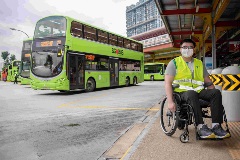Tower Transit’s first Inclusivity Officer is on a mission to foster a more caring commuting culture
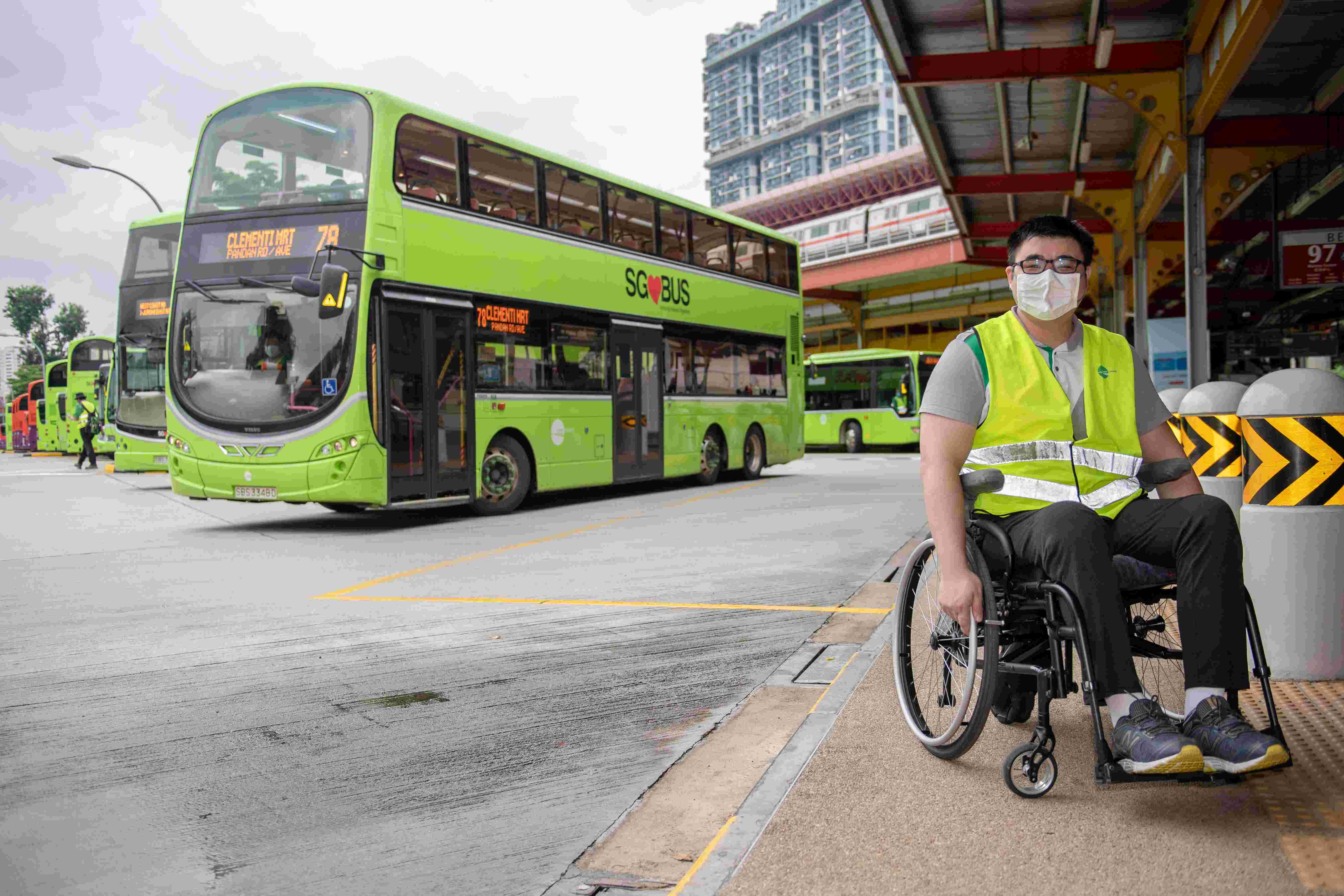
28-year old Kishon Chong‘s enthusiasm is infectious, even through a face mask.
After suffering a spinal cord infarction in 2018, the former chef and competitive para powerlifter has had to adjust to life and work as a wheelchair user.
As Singapore’s first Customer Experience and Inclusivity Officer (CXIO), he credits Tower Transit Singapore with granting him an opportunity to positively impact fellow persons with disabilities (PwDs) who use public transport.
“It was something new, interesting and intriguing - a genuine effort to move toward inclusivity, which is something I can really align myself with,” he shares.
Kishon’s duties at his new job include working with various departments to make training protocols more inclusive, conducting 32 on-board service audits a month, and interacting with commuters at the Jurong East and Bukit Batok bus interchanges.
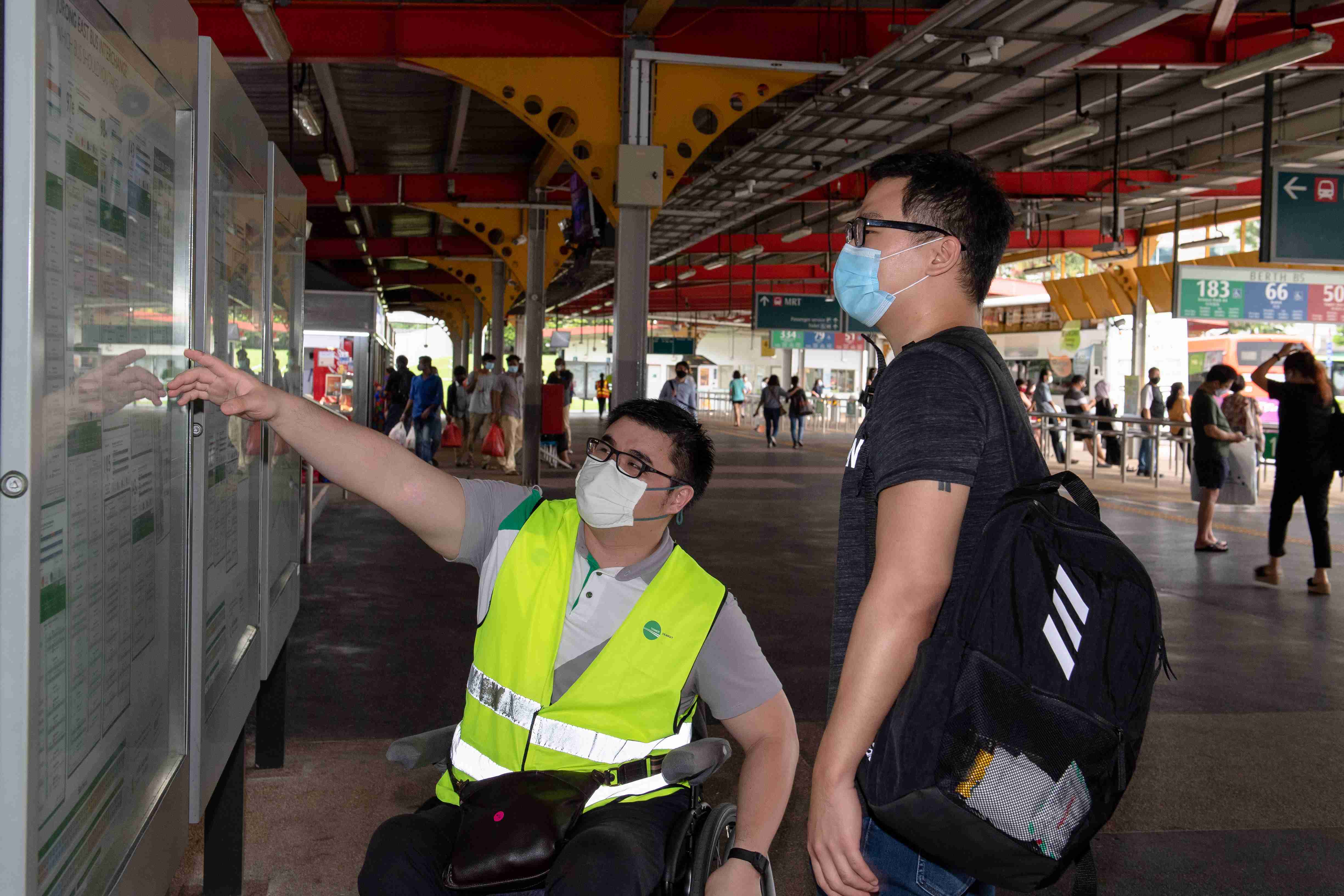
“I’m not here just to engage commuters, but to generate awareness,” he explains. “I want people to see me as a CXIO offering help, not a PwD asking for help. This is the most common stigma that we are trying to break.”
As more PwDs occupy job roles like his, Kishon believes the public’s perception will continue to shift. At the same time, he isn’t losing sight of the larger goal: to create a more caring commuting culture for everyone.
“To create such a culture, we have to foster empathy, and empathy starts with awareness,” he outlines. “Initiatives may be helpful in the short-term, but culture is much more pervasive.”
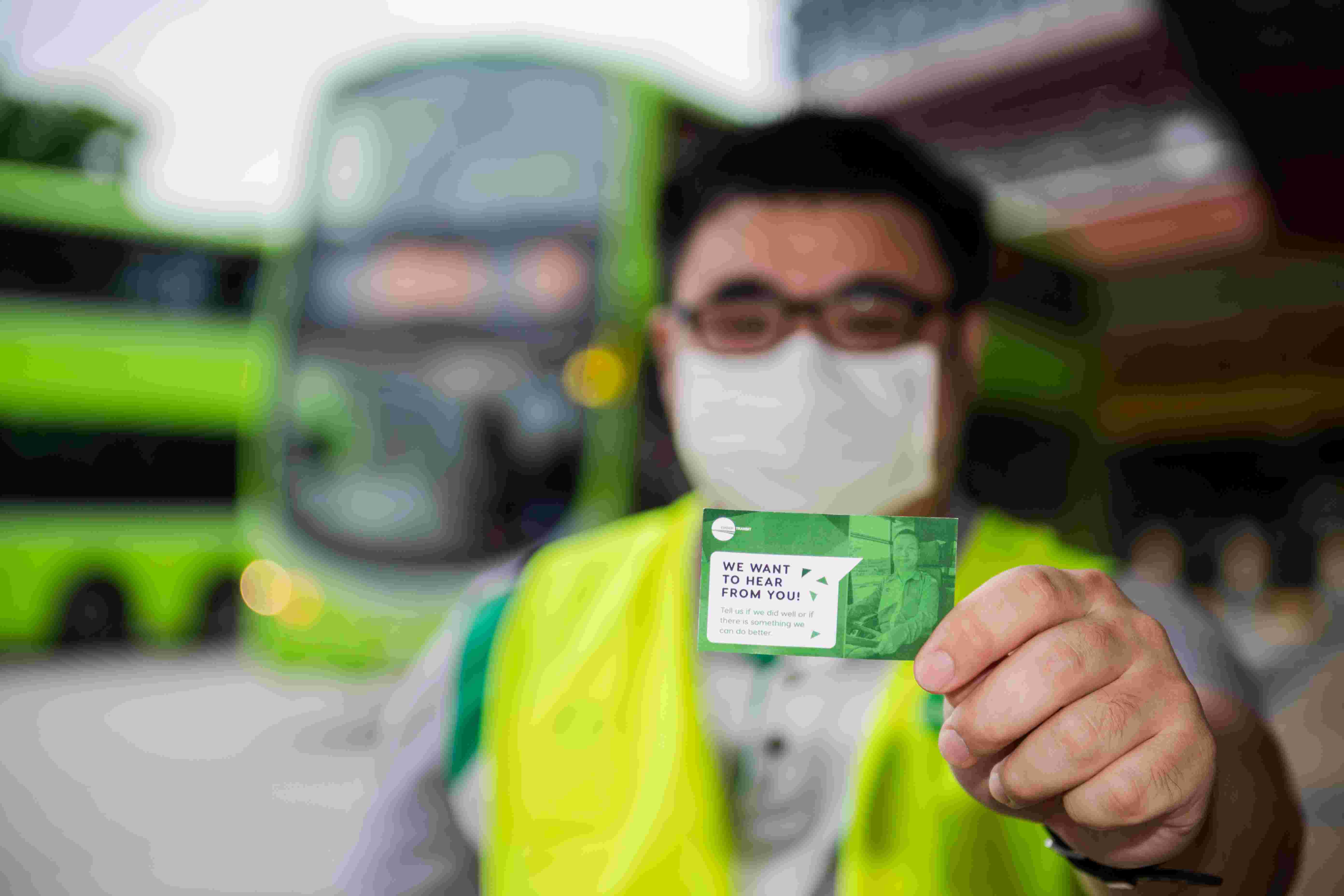
Knowing that the majority of Singaporeans use public transport on a daily basis, he is able to visualise his goals with a simple thought exercise.
“Picture the difference between having two bad trips every single day versus two pleasant one,” Kishon says. “If just a few people are more aware and helpful, a ripple effect will inspire others to do the same.”
When asked what fellow commuters can do to contribute to a caring culture, his answer is simple. “Just ask, and don’t be afraid.
It’s less about the physical act of helping, but more about showing you care,” he advises. “A simple ‘Hello, do you need any help?’ can easily make a person’s day. Cultivate that mentality and you can make a huge difference!”
Kishon has a unique perspective, but is highly aware that a wide range of other disabilities also have to be considered.
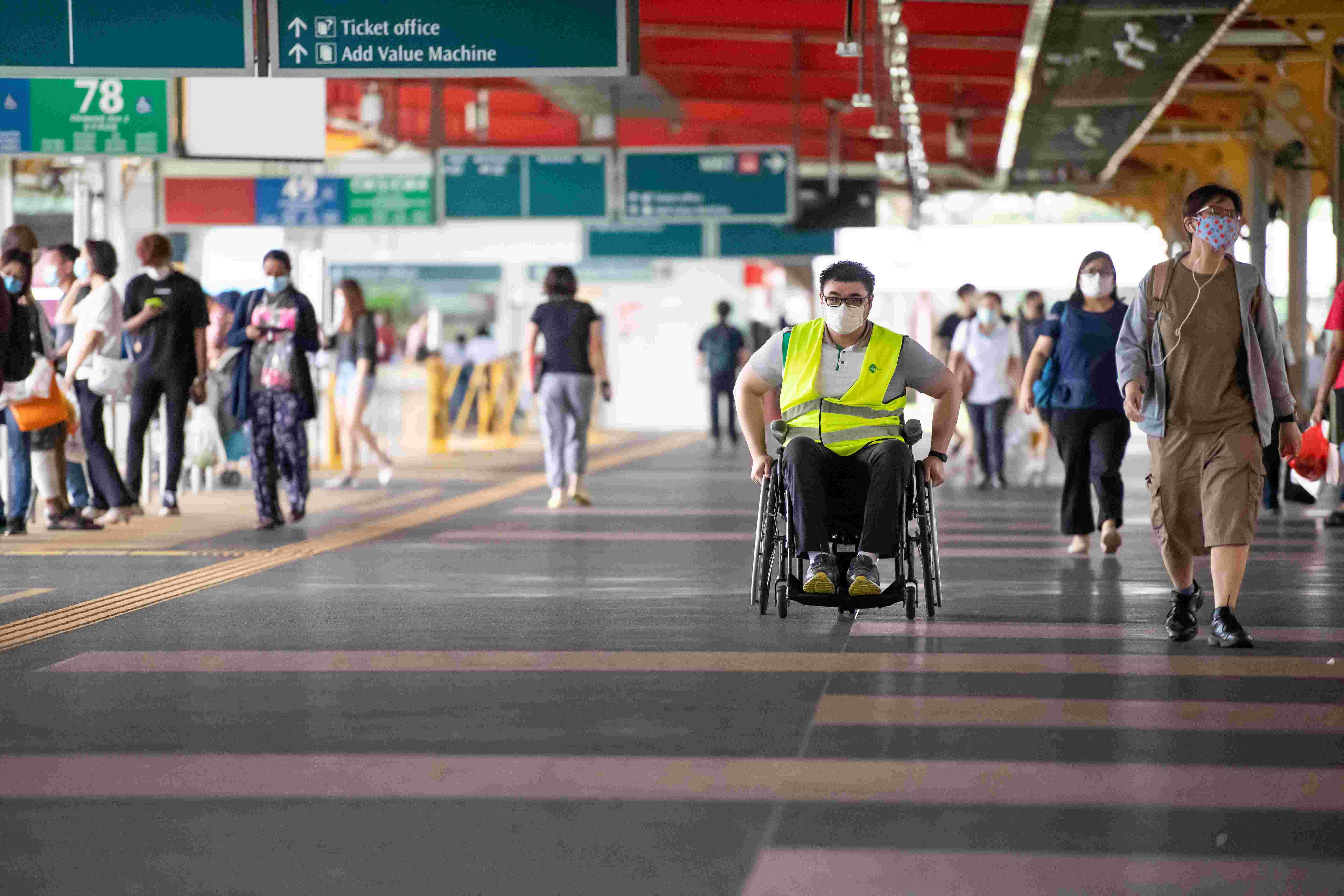
“We don’t want to generalise PwDs,” he tells us. “As a wheelchair user, I understand my experiences differ from a visually-impaired commuter, for example.”
To him, this diverse spectrum represents an opportunity to build on Tower Transit’s dedicated efforts for inclusivity on public transport.
For Kishon and Tower Transit, it’s going to be a long but inspirational journey toward a more gracious, inclusive, and caring commuting culture for Singapore.
Discover more inspiring stories and share your own experiences with caring commuters at https://www.caringcommuters.gov.sg/community-wall
